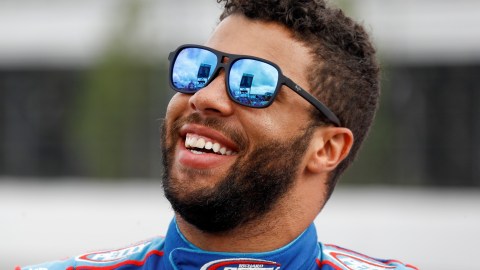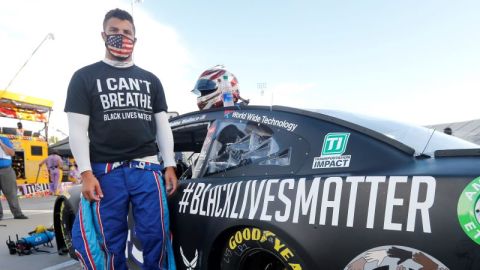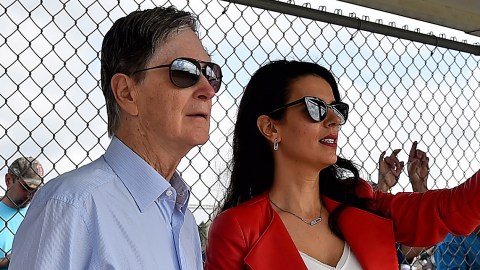The Celtics may insist Avery Bradley‘s anticipated absence at the start of the season will not affect them, but after Rajon Rondo dubbed his teammate “the best on-ball defender in the league” last May, there is no downplaying Bradley’s importance to the team this season.
The question is not “whether” missing Bradley for up to two months will impact the Celtics, but “how much.”
The mood around the team changed when Bradley became Boston’s starting shooting guard on March 25. Kevin Garnett‘s move to center a month earlier had altered the team’s substitution pattern and improved the team’s all-around play, but much of the team still tread lightly around the topic with the veteran big man. Garnett openly admitted he “hated” playing center, but shrugged his shoulders and acknowledged he would do whatever was best for the team.
Then Bradley’s emergence energized the locker room. Although it was unfortunate that injuries to Ray Allen and Mickael Pietrus were necessary to force coach Doc Rivers to put Bradley in the starting lineup, the rest of the team clearly developed an extra bounce in their steps. After dropping a surprising 23 points in that first game against the Wizards, Bradley gradually unveiled an expanded offensive arsenal before injuries to both shoulders sidelined him for good on May 18 following Game 4 of the Eastern Conference Semifinals in Philadelphia. The rest of the team, particularly Rajon Rondo, enjoyed the new dimension Bradley brought at both ends of the floor, and the gameplan will have to change if he is out for some time.
The acquisitions of Jason Terry and Courtney Lee soften the blow, of course. Terry should be a huge upgrade offensively, and Lee should be an even more effective corner 3-point shooter than Bradley proved to be in extended action.
Yet Bradley’s defense was what earned him a spot in the starting lineup in the first place, and it was his defense that kept him there. Any discussion of how the Celtics will cope without him begins at that end of the floor.
No regular backcourt player in the league limited opposing offenses like Bradley. When he was on the court, the Celtics allowed 92.9 points per 100 possessions — a statistic known as “defensive rating,” in which Bradley led all guards who played at least 50 games and averaged more than 15 minutes per game.
Terry, never known as a defensive stalwart, had a poor defensive rating of 101.7, but the Celtics did not get him for his defense anyway. Lee is more likely to take on Bradley’s role as a defensive stopper due to his 6-foot-5 frame and his reputation as an above-average defender. The advanced statistics are not as kind to Lee, though. Lee posted a defensive rating of 102.0 last season, far worse than even that of Allen, whose defense was maligned by Celtics fans and opposing fans alike. A nine-point swing in points per 100 possessions would have a serious, and possibly critical, impact on the Celtics’ fortunes next season.
But the rating alone does not tell the story. The Celtics were arguably the league’s top defensive team, allowing the second-fewest points per game and the lowest opponent’s field goal percentage while carrying the second-lowest defensive rating. It would make sense that on such an elite unit, an individual defender like Bradley would have numbers that looked better against Lee, who played on an average defensive squad like the Rockets.
The better way to compare Bradley and Lee, therefore, is to analyze the impact each player had relative to his team. Bradley’s 92.9 rating was a 2.4-point improvement on the Celtics’ stingy 95.3 rating. That may not seem like much, but keep in mind that a 1.3-point difference per 100 possessions helped to separate the champion Heat from the first-round fodder Knicks. When Bradley was off the court, the Celtics’ defensive rating skyrocketed to 97.5 points per 100 possessions. That number still would have gotten the Celtics into the playoffs, but it would not have gotten them to the Eastern Conference Finals and possibly not even the semis.
The Rockets, meanwhile, had a team defensive rating of 102.1, dead-center in the league rankings. With Lee on the court, as mentioned, the Rockets gave up 102.0 points per 100 possessions — basically a wash with the overall mark. When Lee left the court, the Rockets surrendered 102.3 points per 100 possessions. Again, that is not a massive difference. Lee had essentially no influence on the Rockets’ ability (or inability) to stop opponents from scoring. He did not make the Rockets worse, but he did not particularly make them better, either.
Lee’s defense should not be condemned off these statistics alone. Kevin McHale is far from Rivers’ equal as a strategist, and Lee’s numbers are bound to improve with Kevin Garnett supporting him instead of Samuel Dalembert or Luis Scola. Throw Bradley on a middling defensive team like the Rockets and his numbers would suffer, too.
If nothing else, these stats serve as a bit of caution. Bradley is a superlative defender, and while his absence should not be enough to send the Celtics to the cellar in the standings, do not expect Lee or Terry to simply slide into Bradley’s starting spot and not cause some drop-off.
Have a question for Ben Watanabe? Send it to him via Twitter at @BenjeeBallgame or send it here.



